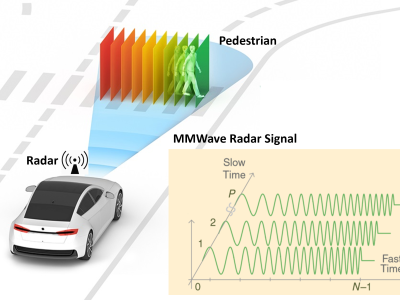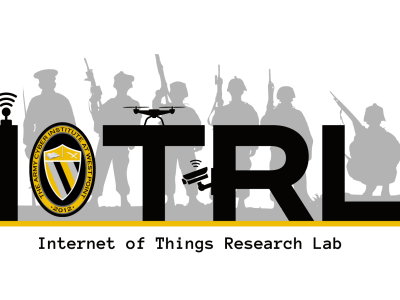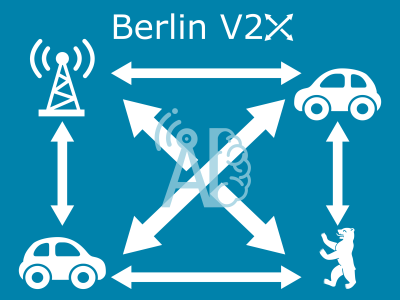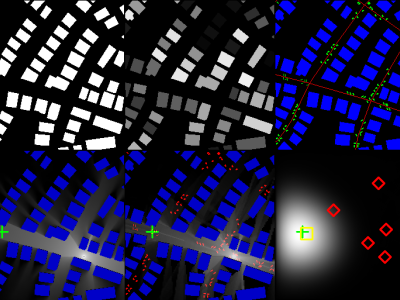CRAWDAD uclouvain/mptcp_smartphone

- Citation Author(s):
-
Quentin De ConinckMatthieu BaertsBenjamin HesmansOlivier Bonaventure
- Submitted by:
- CRAWDAD Team
- Last updated:
- DOI:
- 10.15783/C7VG6H
- Data Format:
 335 views
335 views
- Categories:
Abstract
Multipath TCP is a recent TCP extension that enables multihomed hosts like smartphones to send and receive data over multiple interfaces. Despite the growing interest in this new TCP extension, little is known about its behavior with real applications in wireless networks. Our paper "A First Analysis of Multipath TCP on Smartphones" analyzes a trace from a SOCKS proxy serving smartphones using Multipath TCP. This first detailed study of real Multipath TCP smartphone traffic reveals several interesting points about its behavior in the wild. It confirms the heterogeneity of wireless and cellular networks which influences the scheduling of Multipath TCP. The analysis shows that most of the additional subflows are never used to send data. The amount of reinjections is also quantified and shows that they are not a major issue for the deployment of Multipath TCP. With our methodology to detect handovers, around a quarter of the connections using several subflows experience data handovers.
last modified : 2016-03-04
nickname : mptcp_smartphone
institution : Université catholique de Louvain
release date : 2016-03-04
date/time of measurement start : 2015-03-08
date/time of measurement end : 2015-04-28
collection environment : The dataset covers the traffic produced by a dozen of users using Nexus 5 smartphones running Android~4.4 with a modified Linux kernel that includes Multipath TCP v0.89.5. These users were either professors, PhD or Master students at Université catholique de Louvain-la-Neuve. While some of them used their device to go only on the Internet, others are still using them as their main phone.
network configuration : All the TCP traffic is relayed to a Multipath TCP capable SOCKS proxy. This allows smartphones to use Multipath TCP.
data collection methodology : Tcpdump with a filter containing only TCP packets. Note that the trace contains both proxy sides, i.e. smartphone side and real server one.
sanitization : We first remove all packets that are not from/to smartphone side. In other words, we removed all packets where the real remote server was involved. To do this, we check the SYN and SYN/ACK of connections to label them as interesting or not. Note that in this process, packets without SYN or SYN/ACK in the same file were removed. The following modifications were then applied on the filtered traces to anonymize them: * MAC addresses: set to 00:00:00:00:00:00 * IP addresses: bytewise hasing with HMAC-SHA1 (prefix-preserving) * IP Type of Service: set to 0 * IP options: removed * TCP MPTCP ADD_ADDRESS option: set private IP to 0.0.0.0 (or ::0 if advertising IPv6 address); if not private, bytewise hashing with same HMAC-SHA1 than IP addresses. * TCP payload: removed * Checksums are recomputed on anonymized packets and bad original checksums are left bad in anonymized packets. You can find our anonymization software (PktAnon with some adaptation to keep it MPTCP aware) here: https://bitbucket.org/qdeconinck/packet-anonymizer
limitation : If packets of a connection are spread on two files, say f1 and f2, if the SYN and SYN/ACK are contained in f1, all remaining packets in f2 are removed (due to sanitization).
Traceset
uclouvain/mptcp_smartphone/mptcp_smartphone
Multipath TCP traces from real smartphone users
- files: mptcp-dump_20150408_14121311.pcap.gz, mptcp-dump_20150408_14121315.pcap.gz, mptcp-dump_20150408_14121306.pcap.gz, mptcp-dump_20150408_14121312.pcap.gz, mptcp-dump_20150308_21403709.pcap.gz, mptcp-dump_20150308_21403705.pcap.gz, mptcp-dump_20150408_14121300.pcap.gz, mptcp-dump_20150408_14121307.pcap.gz, mptcp-dump_20150408_14121303.pcap.gz, mptcp-dump_20150308_21403713.pcap.gz, mptcp-dump_20150308_21403712.pcap.gz, mptcp-dump_20150408_14121314.pcap.gz, mptcp-dump_20150405_003247.pcap.gz, mptcp-dump_20150408_14121304.pcap.gz, mptcp-dump_20150408_14121301.pcap.gz, mptcp-dump_20150308_21403702.pcap.gz, mptcp-dump_20150405_002006.pcap.gz, mptcp-dump_20150308_21403710.pcap.gz, mptcp-dump_20150408_14121305.pcap.gz, mptcp-dump_20150308_21403706.pcap.gz, mptcp-dump_20150308_21403707.pcap.gz, mptcp-dump_20150408_14121313.pcap.gz, mptcp-dump_20150408_14121310.pcap.gz, mptcp-dump_20150308_21403700.pcap.gz, mptcp-dump_20150408_14121302.pcap.gz, mptcp-dump_20150308_21403704.pcap.gz, mptcp-dump_20150408_14121308.pcap.gz, mptcp-dump_20150308_21403701.pcap.gz, mptcp-dump_20150408_14121309.pcap.gz, mptcp-dump_20150308_21403708.pcap.gz, mptcp-dump_20150308_21403703.pcap.gz, mptcp-dump_20150308_21403711.pcap.gz
- measurement purpose: Network Performance Analysis, Usage Characterization
uclouvain/mptcp_smartphone/mptcp_smartphone Traces
- mptcp_smartphone:
- format:
PCAP
Instructions:
The files in this directory are a CRAWDAD dataset hosted by IEEE DataPort.
About CRAWDAD: the Community Resource for Archiving Wireless Data At Dartmouth is a data resource for the research community interested in wireless networks and mobile computing.
CRAWDAD was founded at Dartmouth College in 2004, led by Tristan Henderson, David Kotz, and Chris McDonald. CRAWDAD datasets are hosted by IEEE DataPort as of November 2022.
Note: Please use the Data in an ethical and responsible way with the aim of doing no harm to any person or entity for the benefit of society at large. Please respect the privacy of any human subjects whose wireless-network activity is captured by the Data and comply with all applicable laws, including without limitation such applicable laws pertaining to the protection of personal information, security of data, and data breaches. Please do not apply, adapt or develop algorithms for the extraction of the true identity of users and other information of a personal nature, which might constitute personally identifiable information or protected health information under any such applicable laws. Do not publish or otherwise disclose to any other person or entity any information that constitutes personally identifiable information or protected health information under any such applicable laws derived from the Data through manual or automated techniques.
Please acknowledge the source of the Data in any publications or presentations reporting use of this Data.
Citation:
Quentin De Coninck, Matthieu Baerts, Benjamin Hesmans, Olivier Bonaventure, uclouvain/mptcp_smartphone, https://doi.org/10.15783/C7VG6H , Date: 20160304
Dataset Files
- index.html (12.41 KB)
- mptcp-dump_20150308_21403700.pcap.gz (74.88 MB)
- mptcp-dump_20150308_21403701.pcap.gz (79.73 MB)
- mptcp-dump_20150308_21403702.pcap.gz (82.6 MB)
- mptcp-dump_20150308_21403703.pcap.gz (1.95 MB)
- mptcp-dump_20150308_21403704.pcap.gz (327.47 KB)
- mptcp-dump_20150308_21403705.pcap.gz (57.32 MB)
- mptcp-dump_20150308_21403706.pcap.gz (58.45 MB)
- mptcp-dump_20150308_21403707.pcap.gz (73.23 MB)
- mptcp-dump_20150308_21403708.pcap.gz (64.07 MB)
- mptcp-dump_20150308_21403709.pcap.gz (79.78 MB)
- mptcp-dump_20150308_21403710.pcap.gz (95.96 MB)
- mptcp-dump_20150308_21403711.pcap.gz (77.61 MB)
- mptcp-dump_20150308_21403712.pcap.gz (85.34 MB)
- mptcp-dump_20150308_21403713.pcap.gz (1.82 MB)
- mptcp-dump_20150405_002006.pcap.gz (2.7 KB)
- mptcp-dump_20150405_003247.pcap.gz (50.85 MB)
- mptcp-dump_20150408_14121300.pcap.gz (84.31 MB)
- mptcp-dump_20150408_14121301.pcap.gz (74.59 MB)
- mptcp-dump_20150408_14121302.pcap.gz (69.51 MB)
- mptcp-dump_20150408_14121303.pcap.gz (91.61 MB)
- mptcp-dump_20150408_14121304.pcap.gz (21.85 MB)
- mptcp-dump_20150408_14121305.pcap.gz (82.74 MB)
- mptcp-dump_20150408_14121306.pcap.gz (76.58 MB)
- mptcp-dump_20150408_14121307.pcap.gz (75.81 MB)
- mptcp-dump_20150408_14121308.pcap.gz (63.84 MB)
- mptcp-dump_20150408_14121309.pcap.gz (80.28 MB)
- mptcp-dump_20150408_14121310.pcap.gz (69.71 MB)
- mptcp-dump_20150408_14121311.pcap.gz (20.62 MB)
- mptcp-dump_20150408_14121312.pcap.gz (48.16 MB)
- mptcp-dump_20150408_14121313.pcap.gz (60.08 MB)
- mptcp-dump_20150408_14121314.pcap.gz (75.3 MB)
- mptcp-dump_20150408_14121315.pcap.gz (72.15 MB)
- uclouvain-mptcp_smartphone-20160304.xml (12.22 KB)
















